Opinion
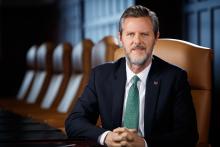
The issue here is not Christians voting differently from each other. That is normal and likely healthy given the independence that people of faith should show over partisan loyalties. This is about the moral hypocrisy of white American evangelical religious right leaders like Jerry Falwell Jr. causing a crisis in the church, dividing American Christians on racial lines, and astonishing the worldwide body of Christ — the international majority of evangelical Christians who are people of color — and whose leaders keep asking many of us what in the world is going on with white American evangelicals.
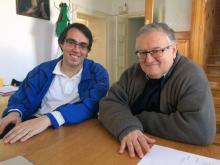
Tucked up near the Austrian border, about 160 miles from Budapest, is a small Hungarian town of 12,000 people. It’s a quiet place about three and a half hours, and two trains rides, from Hungary’s capital.
But the community has been split by the decision of the local Catholic parish priest, the Rev. Zoltan Nemeth, to allow some asylum-seekers to take shelter in a church building.
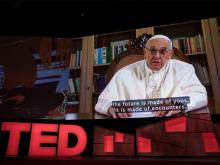
The talk — a surprise for all in the audience — recapitulated the key themes of the Argentinian pope’s view of the human person: We are all related and interconnected; scientific and technological progress must not be disconnected from social justice and care for the neighbor; and that the world needs tenderness.
I am a scholar of modern Catholicism and its relations with the world of today. From my perspective, there are two essential elements of this talk that are important to understand: the message of the pope and his use of the media.

We are living in a time of unprecedented economic disparity between the rich and the poor, the haves and the have-nots. Masses live in poverty so that a handful of people can live as they wish. The world’s three richest people own more than the combined economies of 48 countries. The average CEO in the US is making 400 times the average worker.

Growing up, I heard stories about random acts of kindness, anonymously dropping off gifts for people, blessing them in some way as to remind them that they are not alone. It was almost a Christian duty to spread kindness like this, because it was kindness without expecting anything in return. I thought about doing that for these neighbors, leaving a simple note or just a bouquet on their doorstep, but that’s not what was needed. In all that may have been awkward or uncomfortable about that encounter, these people needed to know that I saw them.

On Saturday, we'll march for the environment; on Monday, for immigrants and workers. On Tuesday, we'll go back to building a sustainable movement for change.


To tell a Christian story about environmental care, we must redefine Christian stewardship. For a movement to attach Christ’s name to it, it must embody the spirit of Jesus as one who gave away his power. Christian stewardship, then, is not dominating with power, but yielding with care. First, we must listen to what the natural world is telling us and respond to it accordingly, not only because we ought to be tenderhearted people, but because it ensures our mutual flourishing
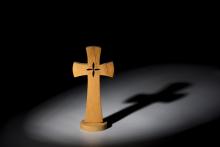
On the Monday after Easter, as the state of Arkansas fought a stay of execution for seven prisoners in order to put them to death, I meditated on a simple truth: When people are executed, Christ is crucified all over again.

I was privileged to work in the transition-to-democracy team in South Africa in 1994. I cast my early vote for Nelson Mandela on April 26 — 23 years ago yesterday. I worked with Madiba’s team on his inauguration speech. April 26 is a special day for me. For most of my beloved countrywomen and men in South Africa, victory day is April 27 — Freedom Day. This day marked the first post-apartheid national election, a day when everyone over age 18 was allowed to vote.
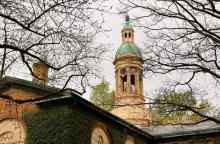
Perhaps one reason the events played out differently at Princeton is because folks there insisted on seeing one another as members of a community, participants in the one Body of Christ, and in that spirit mustered what Dietrich Bonhoeffer once called the “ministry of bearing” essential to maintaining community. In 1938 Bonhoeffer wrote a book about his own seminary called Life Together, in which he emphasized that the enjoyment of fellowship with other Christians is a privilege, a gift of God’s grace. But he also understood that the church is a human community, and therefore not immune from conflict. Christians, he said, ideally respond to their inevitable conflict with a reassertion of mutual care and intentional practices of community building in the name of Christ.

Since Inauguration Day, I’ve seen a lot of emotional outbreaks from the people of America — people on separate ends of the political spectrum, on separate ends of what it should mean to be a person of faith in America. These divisions have been reinforced with violent hate crimes and rants from church pulpits; they’ve resulted in people leaving the church and claiming that Christianity is nothing more than a white man’s religion practiced through discrimination and oppression.

Donald Trump’s wall is obviously a terrible idea: It’s both impractical and ineffective — and more importantly, it’s immoral. Building Trump’s wall would be building a 2,200-mile-long monument to racism.

As Christians in an unjust world, it’s easy for us to long for escape, for a “pure, uncorrupted” place that makes sense to us — that is, our ideas of heaven. But while it’s important to desire that perfection, we ourselves can’t actually attain it, as true comprehension of heaven lies beyond earthly grasp. If getting to heaven is the only thing we care about, we’re missing the point.

Salvation cannot remain an individualized spiritualized concept. When the psalmists called out for salvation, they meant salvation from present suffering and danger. When the crowd shouted “Hosanna” at Jesus’ arrival in Jerusalem, they weren’t referring to the afterlife. When we talk about salvation in the context of our warming climate, we mean deliverance from the most destructive force our species has ever faced. When it comes to climate change, we have to think about community and salvation in a global sense. We must start to recognize that our communities are mutually dependent upon each other.

The purpose of the episode is not merely to introduce an autistic character, but to show how people with differing abilities can become friends. Sesame Street gently demonstrates the patience and empathy that make up the building blocks of any healthy relationship. It deftly navigates the misimpressions neurotypical children might have when they encounter an autistic person for the first time and shows that a little understanding goes a long way toward making a lifelong friend. When Big Bird first encounters Julia, he mistakes her unresponsiveness to him as a personal dismissal. He must learn that she takes her time answering, particularly when she’s deep in concentration on another activity. While he notices that she does things differently, he soon comes to realize that Julia’s way to play can be a lot of fun.

In the same-sex marriage discussion, people cite 2,000 years of church history to support their suspicions of affirming theology. But this same history offers plenty of examples of healthy theological shifts that actually counter tradition. Healing on the Sabbath went against thousands of years of history. Replacing circumcision with baptism went against thousands of years of history. Even the Reformation went against 1,500 years of history, with the Reformers’ claim that they better understood the church fathers than the church did. History reveals that the church is always learning, always engaging in a re-examination of core values.

Sincere love during these times means offering sanctuary for the sojourner, risking our congregations, and even putting our bodies on the line — knowing that our true citizenship is in the Kingdom, where no one is illegal and all are loved.

It is crucial for Christians to be involved in this march and supportive of science. Our orientation to the world is to care for all creation, human and non-human. Science, when done humbly and rigorously, recognizing our creaturely place in creation, and seeking understanding over control, enables us to more fully care for the world and draw closer to God. The march for science is an opportunity to stand in solidarity with scientists whose work helps us better understand the world and care for the oppressed.

Divine creativity is one of the things we share with our creator. It is woven into our DNA. We’re active participants in the continuing story of creation whether we like it or not.